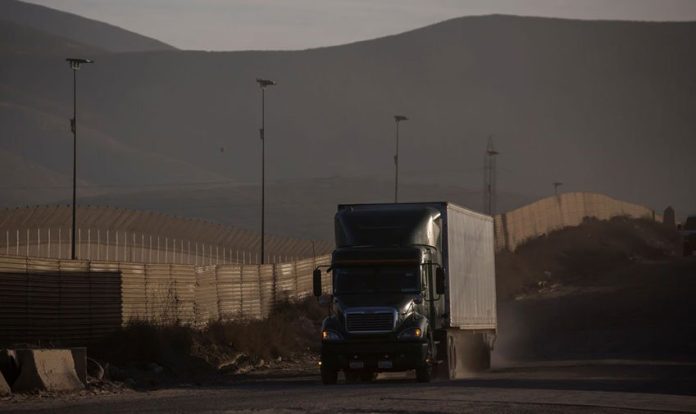The incoming government’s plan to cut tax rates in the northern border region has been put on ice by federal lawmakers.
At a meeting in Mexico City yesterday, the chairs of the budget and finance committees in both houses of Congress warned that conditions are not right to reduce the value-added tax (IVA) and income tax (ISR) rates near the Mexico-United States border.
President-elect López Obrador said during the election campaign that his government would establish a free zone extending 30 kilometers south of the border in which the IVA would be cut by half from 16% to 8% and the maximum ISR rate will be reduced from 30% to 20%.
But at least in the short term, it appears that he will not have the legislative support required to make the changes.
Alejandro Armenta, a senator with López Obrador’s Morena party and chair of the upper house finance committee, said there is a consensus in the Senate that “a lot of care” must be taken with regard to the design of the next budget and Federal Revenue Act.
“It’s going to be a transitional budget and in the Senate, for the good of the country, we’ll responsibly adopt the prudence [necessary] in the approval of the Revenue Act,” he said.
Patricia Terrazas, a National Action Party (PAN) lawmaker who heads up the lower house finance committee, spoke more bluntly about the López Obrador free zone proposal, intended to provide a boost to the economy in the north of the country and slow down migration to the United States.
“Adjusting taxes at the moment is not an option. Nobody is bound to the impossible,” she said.
Terrazas added that while the plan is currently under review, the possibility of it becoming a reality “appears very complicated” because of the impact the tax reductions would have on government revenue streams.
The PAN, a conservative party which was in office between 2000 and 2012, had previously supported the idea.
Even if reductions in the IVA and ISR tax rates for the northern border zone were approved, Terrazas said, “they couldn’t take effect in January” because changes required to electronic invoicing systems would not have been implemented.
The preparation necessary to adopt the free zone plan could, however, take place during the first half of next year, she added.
Her colleague in the lower house, Morena party Deputy and budget committee chair Alfonso Ramírez Cuéllar also said that cutting tax rates was “difficult” but stressed that the proposal was still being analyzed.
Even before taking office, the president-elect has been held partially responsible for the deterioration in Mexico’s economic outlook for 2019, with his decision to cancel the Mexico City International Airport project a main target of criticism.
Source: El Financiero (sp)
